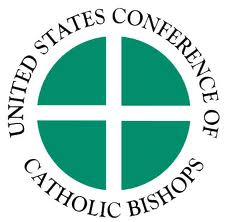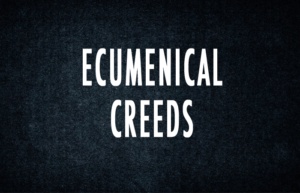The related identification of Scripture as pure, holy, sufficient, and perfect—pure, holy, and sufficient in its teachings for the preaching of salvation and perfect or complete in its communication of those teachings—is a point of doctrine that marks out a major line . . . Continue reading →
catholicity
Of Catholicity and Confusion
One of the most confusing aspects of Protestant-Romanist dialogue is trying to determine “who speaks for Rome?” and trying to answer the question, “What does Rome believe?” One reason it can be difficult to answer these questions is that Rome likes it . . . Continue reading →
Where Was Our Church Before Luther And Zwingli? (4)
VIII. Fifth, the injustice of the demand appears also clearly in this—that they treacherously corrupt the writings of the fathers and endeavor to destroy whatever of candor remains and extinguish all memory of antiquity as far as they are able (most base . . . Continue reading →
The Mystery And Necessity Of The Trinity
Hear, O Israel, the Lord our God, the Lord is one!” In contrast to the polytheistic religions of her neighbors, Israel was made deeply conscious of the fact that there is only one God (hence, the term, “monotheism”). The monotheistic doctrine of . . . Continue reading →
The Catholicity Of The Canons
Wherefore, this Synod of Dort, in the name of the Lord, conjures as many as piously call upon the name of our Savior Jesus Christ to judge of the faith of the Reformed Churches, not from the calumnies which on every side . . . Continue reading →
What Do We Mean When We Say “Holy Catholic Church”?
Clinton writes to ask what we mean when we say, in the Apostles’ Creed, “I believe a holy catholic church.” He reports that some of his friends will not read the Apostles’ Creed, the Athanasian Creed, or the Heidelberg Catechism because they . . . Continue reading →
Who Are The True Catholics?
Introduction There are truly important works that have simply been forgotten or unjustly ignored. One of those is William Ames’ Fresh Suit Against Human Ceremonies in defense of the Reformed theology and practice of worship. Another is William Perkins’ 1597 treatise, A . . . Continue reading →
New Resource Page: The Ecumenical Creeds
The word ecumenical means universal and the ecumenical creeds are the church’s articulation of the universal (or, in that same sense) catholic faith taught in Holy Scripture and confessed by the church since the time of the apostles. The apostolic church itself . . . Continue reading →
Catholicity, Confusion, And A Correction
In the mid-1970s, the original cast of Saturday Night Live featured a regular character as part of the Update sketch. The character’s name was Emily Litella. She was played by the late Gilda Radner. It used to be that local newscasts would . . . Continue reading →




